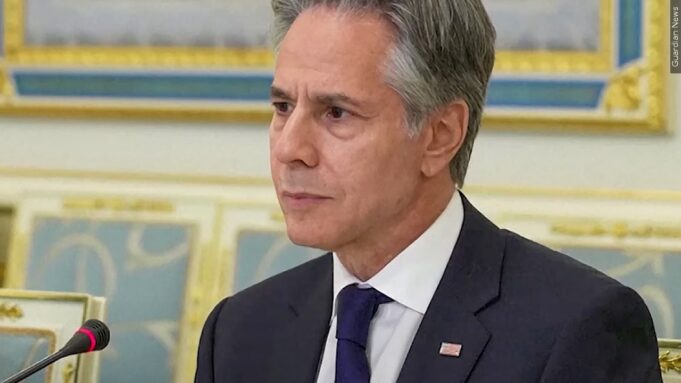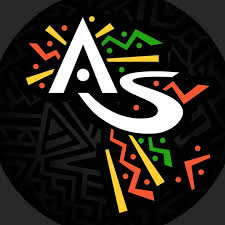U.S. Secretary of State Antony Blinken and his State Department are taking a page out of America’s past Cold War tensions with the Union of Soviet Socialist Republics (USSR).
They are doing this by influence peddling via “soft power” efforts and simultaneously constructing what they call, “a more resilient global information system, where objective facts are elevated and deceptive messages gain less traction,” said Blinken on Sept. 13 in the Washington Press Briefing Room.
“We are working to disrupt, to deter disinformation” … and “taking steps to hold accountable those who weaponize disinformation to undermine democracy,” he added. He accused the Russian state-owned media outlet RT of being a misinformation and propaganda outlet.
He then attacked the online popular Kenya-based media site “Africa Stream” as being a “Kremlin proxy.” With millions of subscribers, Africa Stream is a global pan-African digital media organization providing a voice to Africans at home and in the diaspora through cutting-edge, African-centered content.
On the U.S. Department of State website, Blinken accused RT as “attempt(ing) to foment unrest” and said without providing proof, the outlet “secretly runs the online platform ‘African Stream’ across a wide range of social media platforms.”
The website also stated, “Now, according to the outlet’s website, ‘African Stream is’—and I quote—‘a Pan-African digital media organization based exclusively on social-media platforms, focused on giving a voice to all Africans both at home and abroad.’ In reality, the only voice it gives is to Kremlin propagandists.”
How Blinken determined Africa Stream to be a mouthpiece of the Kremlin is anyone’s guess. According to a statement by Africa Stream:
“Our channel was deleted from YouTube, Facebook and Instagram after U.S. Secretary of State Antony Blinken accused our platform of being secretly run by RT.”
Africa Stream stated that it receives “no funding from any state or government,” adding, “We are critical of U.S. foreign policy in Africa and we believe that is what is behind the (State Dept.) attacks … .”
Concerning modern-day soft power efforts, the State Department also has a Global Music Diplomacy Initiative which could have some parallels to Washington’s Cold War-era efforts to use the arts to inspire U.S.-backed regime change in Eastern Europe and to use musical tours that were used historically as covers for the CIA to do its global clandestine activity, explained Alan McLeod in mintpressnews.com.
According to state.gov, “On September 27, 2023, the U.S. Department of State launched the Global Music Diplomacy Initiative, which builds on existing music diplomacy efforts and delivers upon on the bipartisan Promoting Peace, Education.
And Cultural Exchange (PEACE) Through Music Diplomacy Act that President Biden signed into law last year. This Act called on the Department to use public-private partnerships to support music diplomacy.”
The term “soft power” was coined by international relations analyst and theorist Joseph Nye. The U.S., UK and China are at the top of the soft power list, noted stage.powersofAfrica.com.
During the Cold War with communism and the old Soviet Union, the American government tried to use jazz musicians to bolster its global reputation and used cultural performances to cover covert operations in Africa.
There was often tension between musicians representing American interests abroad while their people suffered at home. The U.S. State Department’s first jazz ambassador, Dizzy Gillespie, grew up in the South.
He saw the irony of promoting America’s “freedom” abroad while remaining a second-class citizen. Known for being outspoken, Gillespie refused to be briefed by the State Department before a performance, reported Time.com in a 2017 article, “How the U.S. Used Jazz as a Cold War Secret Weapon.”
“I’ve got 300 years of briefing,” Gillespie said, according to the article, adding, “I know what they’ve done to us and I’m not going to make any excuses.”
However, the State Department “was careful to frame its new venture as one designed to support peace, the program’s history and the United States’ foreign policy moves strongly undermine that claim,” explained Alan Macleod, author and senior staff writer for MintPress News, regarding the new Global Music Diplomacy Initiative.
According to Macleod, “Throughout the press conference announcing the project’s inauguration, both Blinken and YouTube’s global music head, (Lyor) Cohen, constantly mentioned the CIA’s secret Cold War program to use music and the arts as weapons for regime change.
Referencing sending Louis Armstrong to play behind the Iron Curtain, Blinken stated, ‘America’s secret weapon is a blue note and a minor chord. Music is such a powerful diplomatic force because, I think, it taps into something fundamental, universal.’”
However, Blinken failed to mention Armstrong’s 1960 tour of the Congo sponsored by the U.S. State Department. During his trip, the U.S. Information Agency had Armstrong “play in Elisabethville, capital of the so-called Independent State of Katanga,” wrote Susan Williams in her 2021 book, “White Malice: The CIA & The Covert Recolonization of Africa.”
The CIA and high-level State Department officials used Armstrong’s visit to Katenga as a way to visit and monitor U.S. and UK large copper mines, rich uranium deposits and diamond mine interest without “undue suspicion,” Williams explained.
Follow @JehronMuhammad on X














